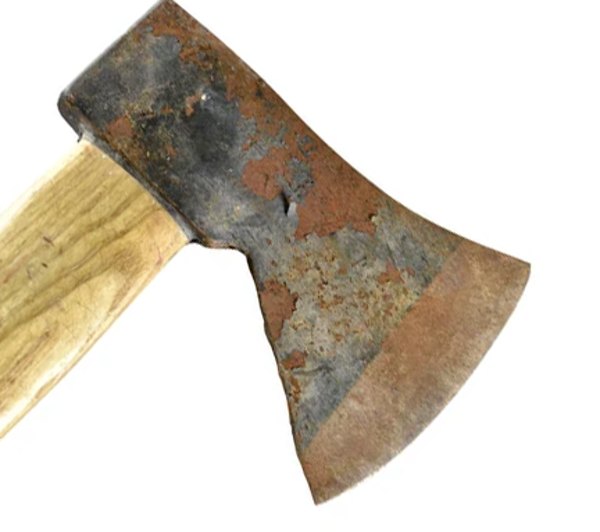
Recently, I cleaned out my wardrobe. I pulled two large garbage bags of clothes to donate. I don’t need a month’s worth of clothes that I don’t wear. However, I felt a strange reluctance to donate them. I’m attached to some because they were gifts. While I sorted, some Japanese and Ainu folklore came to mind. In traditional Japanese stories, old and well-used objects can develop a spirit. These objects were appreciated and even venerated for how they improved the lives of their users. Here’s a folktale where such ancient objects even became gods:
Once, a little boy befriended a divine boy and girl who would come to play each day. His parents couldn’t see these friends. The little boy grew sick, and during this illness the friends didn’t come. When they finally visited, the boy was near death.
“We know what made you sick,” the girl said. “Your grandfather owned a beautiful axe. I am a small tray that he made with it. And my brother is a pestle that was also made with the axe. But your father has been bad. He threw away the axe. It now rusts under the floor, so the axe made you sick to punish your father. We came to warn you. If you want to live, you must tell your father to find the axe, polish it, and make a new handle for it. Then you will be cured, and the axe will visit you in a human shape.”
So the boy told his father of this. His father searched under the floor of the house and found the axe. He polished it and made a new handle for it. And his son immediately felt better.
After that, the axe appeared to the boy as a handsome man. The tray and the pestle also visited and became the boy’s sister and brother. As a god, the axe knew everything that happened and their causes. So the boy learned everything the axe had to say. He knew why people became sick and how to treat them. Soon, people in the village saw the boy as a great healer and prophet.
For this reason, you should never throw away anything that belonged to your ancestors. You will be punished by the gods if you do.
Of course, today we don’t have that sort of relationship with objects, nor do we believe they can become gods or alive. These stories taught apprecation for everyday objects that were hard to come by and valuable for how they made life easier. An axe was an important tool that helped keep your family warm. build them a shelter, and more. Today, we have a throw-away culture and an accumulation culture. The clothes I had weren’t used despite the sentimental value I had for some of them. Accumulation isn’t appreciation. Objects in Japanese tales were used and so appreciated for their purpose. By not using the clothes, I wasn’t appreciating them for their purpose. It’s a common problem we have in our consumer culture. How many objects do you have that you don’t use or use but rarely?
Ancient material culture would be extreme minimalism by today’s standards. Objects were used until they could be used no more because they were hard to come by. While I don’t want to return to such material poverty, we can learn the lessons folklore offers and apply them to our material culture. How we relate to objects reflects on our inner character. After all, moral character is all about how we relate: to other people, to objects, to ourselves, and to the environment. Abusing and not appreciating objects leaves only a small step toward doing to same to living creatures. Objectification reduces people to objects, and if you treat objects poorly, objectification leads you to treating people poorly too.

Japanese folklore reverses the process, treating objects like people. The idea isn’t a bad one, all told. When you appreciate objects, you need fewer of them and use them longer. You also learn to appreciate used, imperfect items too. The wabi-sabi aesthetic helps you accept battered but still-usable objects instead of chasing a new, pristine version. For example, I drafted this article on a used, refurbished laptop I bought off eBay. I added RAM and changed the hard-drive to a solid state drive, and it brought the laptop to new life. It is a little battered, but it works well for what I need. The scuffs and dings give it character, and it’s been serving me daily for many years now.
Appreciation for objects, using them until they cannot be used anymore and then giving them a proper “funeral,” is what we need to do as a world culture. Such a practice would help our environmental problems and financial problems. although it would reduce profitability for companies that rely on our throwaway attitude toward objects. A proper funeral, by the way, would be reusing as much as possible and recycling the rest. In the case of computers, the hard drives and even screens can be reused to certain degrees. It takes a long time for a computer to truly die. Software, particularly Microsoft Windows, leads to planned uselessness. I’m concerned about e-waste. A good portion of it comes from people’s lack of education about software and easy hardware fixes. Namely, Linux can bring to even decade-old computers back to usefulness. Computers are the closest devices to folklore’s living objects. A good computer opens possibilities for learning, creating, and income as few other objects can. The computer is the modern-day axe in the folktale.

Consumer culture doesn’t want us to stop and consider our relationship with objects, to learn to appreciate them and be content with what we have. Accumulation comes easy before you even realize it happens. Then, you have more than you can use and don’t even know what you have. Ancient cultures didn’t have that problem. Scarcity was their reality, yet amid our wealth is a scarcity of appreciation and use.
We can still learn much from old folktales. Sometimes the lessons take time to sink in and strike you when you least expect it, such as when you clean and sort a closet.
If you want to read more Japanese folklore, my book Tales from Old Japan collects over 170 stories. It’s available on Amazon in ebook, paperback, and hardback.
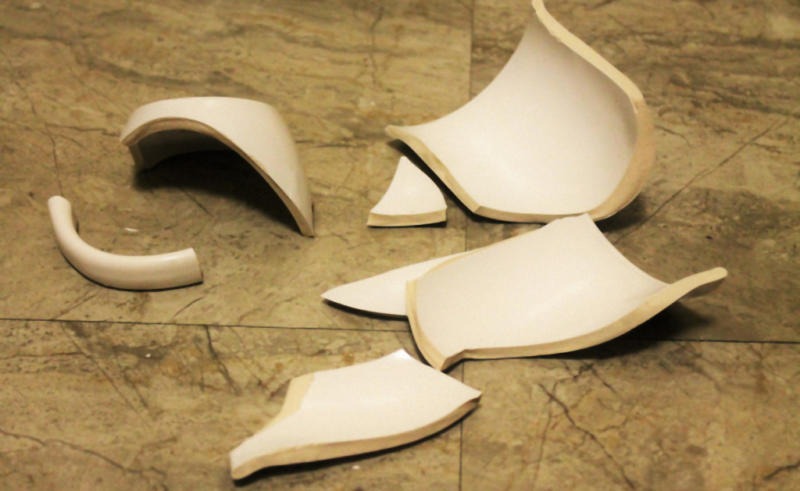
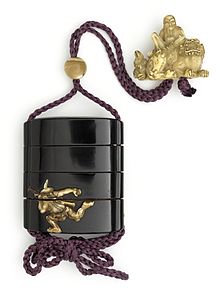
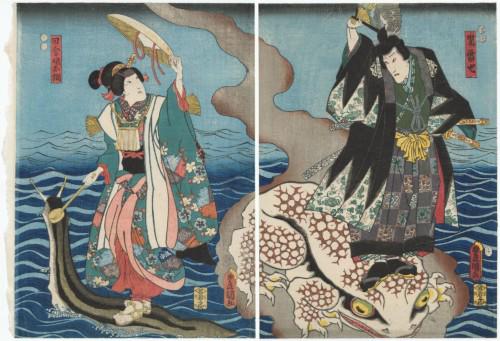
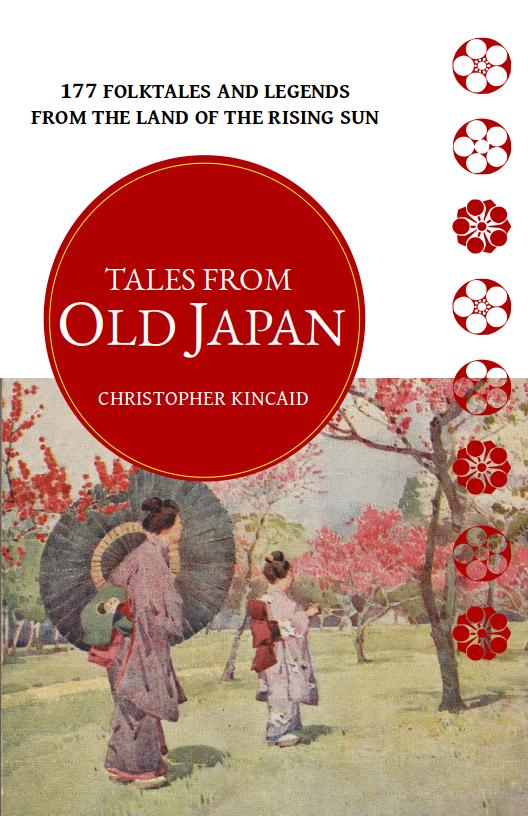
“Tsukumogami” (付喪神), those kami who come to inhabit old objects in the spirit with which they were used (or discarded).
This reminds me of the debate of whether human-like systems such as Siri and Alexa are causing kids to become rude or disrespectful. We don’t ordinarily thank machines, ask their permissions or say “please” to them, and they can be the recipients of frustrations. But young kids who may still see little people in a TV can’t necessarily comprehend that they’re hearing a simulation of humanity, and not the real thing. And just what defines the boundary anyway? Perhaps we should be erring on the side of consideration?
That’s an interesting thought. It makes me think of Confucius’s idea of ritual. Rituals emulate the behavior we should have everyday or the otherliness we should appreciate about life. Through ritual, character can develop. The ritual of saying thank you and please to a machine could fall into this idea.